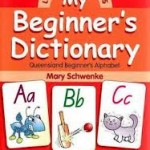 Because I’ve yet to entirely vanquish the schoolteacher in my head, every once in a while I find myself perusing the school system’s scope and sequence. This is a weighty document that spells out everything a child in a particular grade is supposed to have covered, and – with any luck – mastered. Eight years ago, when I left the school system for good, my school was in the midst of a wild love affair with these documents, because they led so beautifully to what was called “standards-based” education at the time (having happily bowed out of public education, I remain blissfully ignorant of what it may now be called, but it’s a pretty safe bet that the idea is the same, whatever the name).
Because I’ve yet to entirely vanquish the schoolteacher in my head, every once in a while I find myself perusing the school system’s scope and sequence. This is a weighty document that spells out everything a child in a particular grade is supposed to have covered, and – with any luck – mastered. Eight years ago, when I left the school system for good, my school was in the midst of a wild love affair with these documents, because they led so beautifully to what was called “standards-based” education at the time (having happily bowed out of public education, I remain blissfully ignorant of what it may now be called, but it’s a pretty safe bet that the idea is the same, whatever the name).
Standards-based education is pretty much the exact opposite of child-led learning. Basically, some highly educated people pretty far removed from actual students decide just what skills kids should have acquired and at what time they should have acquired them. Teachers work backwards from these standards, developing lessons, collecting materials, and finally trying to stuff these skills into their students..or the students into the skills, depending on how you look at it.
Anyhow, about once a year (usually in September, which still somehow feels like the beginning of something!), I check out these skills that Thomas is supposed to acquire in the next ten months. I have a little conversation in my head with a phantom superintendent. “Uses capitals and punctuation appropriately…check! Reads from a variety of genres…check! Contrasts and compares two short stories…check and check! Uses a beginner’s dictionary…RED ALERT!!!”
I realize, with a twinge of panic, that we don’t even possess a beginner’s dictionary! Nor have we ever had a discussion about alphabetization. I find myself making a note to go buy a fantastic beginner’s dictionary – preferably one with captivating pictures and an easy-to-read font, when, thankfully, my small but growing unschooling instinct tells me to give it a pass. After all, it’s only second grade, I reason. I can always rush right out at the beginning of third grade, buy a dictionary and give him a crash course if the phantom superintendent starts knocking on my door demanding proof of dictionary competence.
So imagine my surprise when Thomas announces to me that he has decided to organize all his books “just like a library”. He politely declines my help with the project and cheerfully spends an hour or so at his book shelf, doing, quite frankly, I don’t know what. Finally, he proudly reports that he has finished and asks if I’d like to come see. And what I see is a book shelf neatly alphabetized by title (and attractively spaced with little pieces of his voluminous finger-knitting…but that is another story!). Each new letter is clearly marked (in pencil, directly on the wood, but I decide to let this go). He has placed The Adventures of Huckleberry Finn with the A’s. How did he know to do this? I wonder. When I inquire, he answers that it just made sense, because the “A is what you notice”.
We have a brief conversation about how to go about alphabetizing all of the books beginning with the same letter, but he’s not all that interested, so I drop it. Mostly he’s just proud of the fine work this pleasurable hour has produced. And I’m reassured that this whole unschooling thing really does work.
“Uses a beginner’s dictionary”…not yet. Learning how to alphabetize because it pleases him…CHECK!
UPDATE:
Thomas is now in the “fourth grade” and we finally do own an attractive beginner’s dictionary with captivating pictures and an easy-to-read font. Most of the time it sits decoratively on a shelf. Every once in a while (particularly in September) I take it down and thumb through it. It’s so bright and cheery, optimistically awaiting the day someone might actually use it. But for now, when my kids need to know how to spell a word they’re eagerly writing, or are curious about the meaning of an unfamiliar word they’ve heard, they mostly just ask me. It’s quick, it’s easy, and it I love the way it keeps me connected to what they’re doing.
“Uses a beginner’s dictionary”…still not yet. Learning how to spell and gaining a rich vocabulary in spite of that…CHECK!
How would a dictionary help in learning to spell a word anyway? It’s alphabetical, meaning that in order to find out how to spell the word in one… you have to know how to spell the word! Can you say “Catch-22?”
🙂
I’m genuinely curious as to how that target is supposed to work…